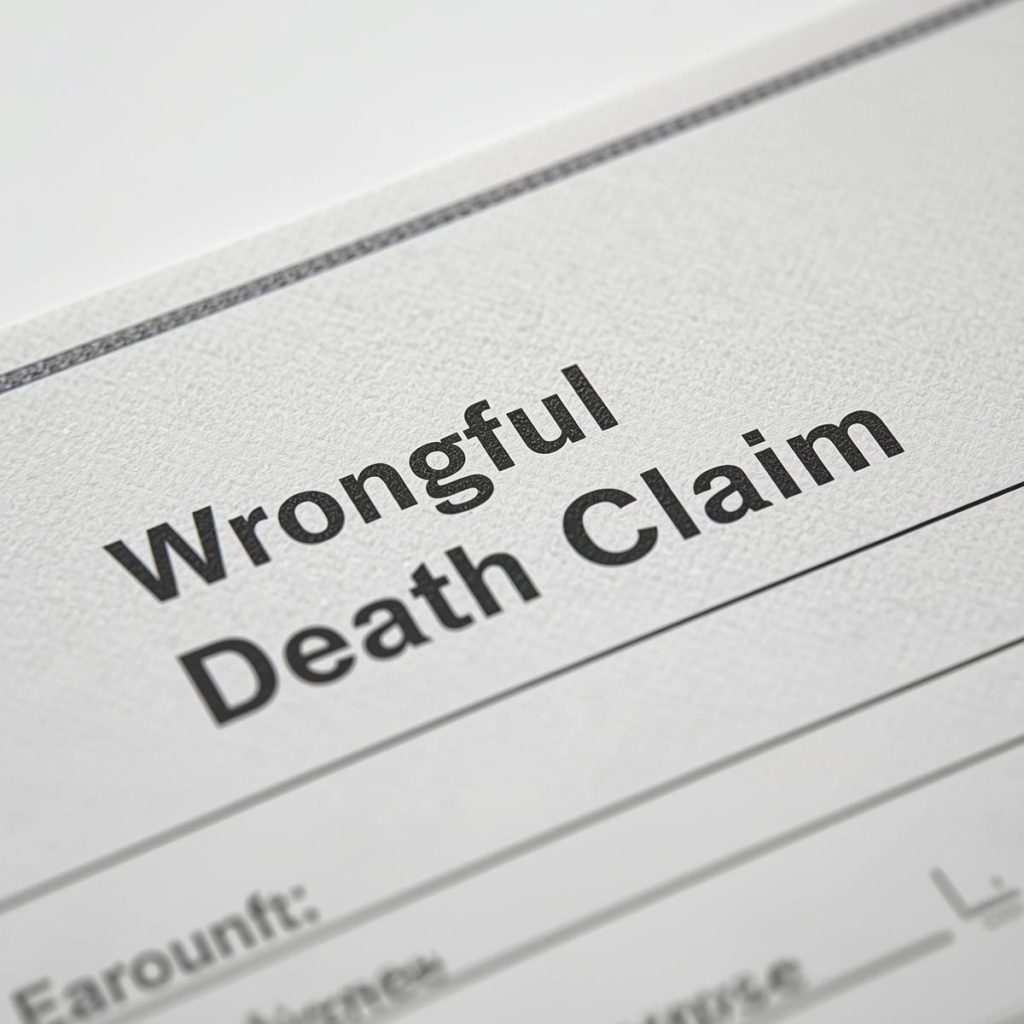- Free Consultation 24/7: (800) 337-7755 Tap Here to Call Us
Who Can Sue for Wrongful Death and Who Gets the Money?
When someone’s death is caused by another person’s negligence or wrongdoing, Florida law gives certain family members the right to seek justice through a wrongful death lawsuit. But many grieving families are left asking two important questions:
- Who can sue for wrongful death?
- And who gets the money if there’s a settlement or verdict?
The answers aren’t always as straightforward as people think — and misunderstandings about how wrongful death claims work can lead to unnecessary conflict or missed opportunities for compensation.
At the Law Offices of Jason Turchin, we’ve guided families across Florida through the wrongful death claims process and helped them understand their rights. Below, we explain how wrongful death lawsuits work, who is allowed to file, and how compensation is divided under Florida law.
What Is a Wrongful Death Lawsuit?
A wrongful death lawsuit is a civil legal claim brought when someone dies as a result of another party’s negligence, recklessness, or intentional act. These lawsuits seek to recover financial compensation for the losses suffered by the decedent’s family and estate.
Wrongful death claims can arise from incidents such as:
- Car or truck accidents
- Medical malpractice
- Defective products
- Workplace accidents
- Nursing home neglect
- Violent crimes or assaults
- Dangerous property conditions
Wrongful death law is different from criminal law. Even if no one is charged with a crime — or if the accused is found not guilty — the family may still file a wrongful death lawsuit.
Who Can File a Wrongful Death Lawsuit in Florida?
Florida has specific rules about who has the legal right to bring a wrongful death claim.
Only the Personal Representative Can File
Under Florida Statutes § 768.20, a wrongful death lawsuit must be filed by the personal representative (PR) of the decedent’s estate. This person is also known as the executor or administrator of the estate.
The PR may be:
- Appointed by the probate court
- Named in the deceased person’s will
- Often a spouse, adult child, or close relative
Even though only the PR can file the lawsuit, they do so on behalf of the eligible survivors and the estate. The lawsuit will list the names of those who may receive compensation.

Who Can Receive Money From a Wrongful Death Case?
Just because someone files the lawsuit doesn’t mean they receive all of the compensation. Florida law identifies specific survivors who may recover damages.
Eligible Survivors Under Florida Law Depending on the Circumstance:
- Spouse
- May recover for:
- Loss of companionship and protection
- Mental pain and suffering
- Lost financial support and services
- May recover for:
- Children
- Minor children (under 25):
- Can recover for lost parental companionship, instruction, guidance, and mental pain and suffering
- Adult children:
- May recover in some cases (especially when there is no surviving spouse)
- Minor children (under 25):
- Parents
- May recover if:
- The deceased was a minor child
- The deceased was an adult child with no spouse or children
- May receive compensation for mental pain and suffering and loss of support
- May recover if:
- Other Relatives
- Blood relatives and adoptive siblings who were partly or wholly dependent on the deceased for support or services may recover financial losses
- These claims are less common but can arise in certain family structures
- The Estate
- The estate may also receive compensation for:
- Medical and funeral expenses
- Lost earnings between the date of injury and date of death
- Lost net accumulations (savings and investments the deceased would have left behind)
- The estate may also receive compensation for:
What Happens If There Are Multiple Survivors?
In many cases, more than one person is entitled to compensation. Florida law requires that the court fairly distribute the damages among all eligible survivors based on:
- The degree of each survivor’s loss
- Their financial dependency on the deceased
- The nature of their relationship with the decedent
If the case settles before a lawsuit is filed, survivors must agree on how to divide the money. If there is a dispute, the court may hold a hearing to determine a fair distribution.
What If There Is No Will or Personal Representative?
If the deceased did not have a will, the court will appoint a personal representative — typically a surviving spouse, adult child, or other close relative. This person will manage the estate and file the wrongful death lawsuit.
It’s important to understand that:
- The person filing the claim is doing so on behalf of all beneficiaries, not just themselves
- The court must generally approve any distribution of funds or the parties can agree on it
- The PR has a legal duty to act in the best interests of all eligible survivors
What Types of Damages Are Recoverable?
Florida law allows for both economic and non-economic damages in wrongful death cases.
Economic Damages:
- Medical expenses
- Funeral and burial costs
- Lost income and benefits
- Value of support and services provided by the decedent
Non-Economic Damages:
- Mental pain and suffering
- Loss of companionship, protection, and guidance
- Emotional distress of survivors
In cases of gross negligence or intentional wrongdoing, punitive damages may also be available to punish the responsible party.
How Are Wrongful Death Claims Paid Out?
Wrongful death settlements or verdicts are typically paid out:
- As lump sums
- Or through structured settlements over time
Funds can be distributed:
- Directly to survivors
- Through the estate and disbursed by the personal representative
- Through court-approved trust accounts for minors or dependents
An experienced Florida wrongful death lawyer can help protect survivors’ rights and ensure that the money is distributed properly.
What Happens If the Survivors Can’t Agree?
If eligible family members disagree on how the money should be divided:
- The court may hold a hearing
- Each party can present their case
- The judge will determine a fair distribution based on losses, dependency, and legal rights
Hiring a wrongful death attorney can help minimize conflict and ensure the distribution process is handled professionally.
Frequently Asked Questions
1. Who has the legal right to file a wrongful death lawsuit in Florida?
Only the personal representative of the decedent’s estate may file the lawsuit, on behalf of all eligible survivors.
2. Do all family members get part of the settlement?
No. Only eligible survivors defined under Florida law may receive compensation — such as spouses, children, and dependent parents.
3. What if the deceased had no family?
If there are no eligible survivors, the estate may still recover damages for funeral expenses, medical bills, and lost earnings.
4. What happens if there is a dispute over the money?
If survivors can’t agree, the court may step in and decide how to fairly divide the settlement.
5. How long do I have to file a wrongful death lawsuit?
In Florida, the deadline is two years from the date of death. It’s important to act quickly to protect your rights.
Contact a Florida Wrongful Death Attorney Today
Losing a loved one is hard enough. You shouldn’t have to navigate the legal process alone. If you’re wondering who can sue for wrongful death and who gets the money, the Law Offices of Jason Turchin can help guide you through every step of the process.
📞 Call us today at (800) 337-7755 or fill out our online contact form for a free consultation. We don’t charge any fees or costs unless we win your case.











